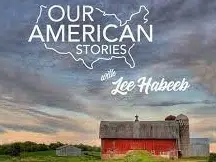By Alasdair Pal
MELBOURNE (Reuters) – Yunupingu, one of Australia’s most influential Indigenous leaders has died aged 74, his family said on Monday, months before a referendum on whether to recognise the community for the first time in the country’s constitution.
Yunupingu is best known as a land rights activist, who was involved in having traditional ownership documents recognised for the first time by Australia’s parliament.
Prime Minister Anthony Albanese called Yunupingu a “national treasure” who worked to unite Australia’s leaders with its Indigenous community.
“Yunupingu walked in two worlds with authority, power and grace, and he worked to make them whole – together,” he said in a statement.
“What he could see was not the reinvention of Australia, but the realisation of a greater one.”
Australia’s Indigenous community, known as Aboriginal and Torres Straight Islander peoples, have inhabited the continent for tens of thousands of years, but have faced persecution and discrimination since colonisation by the British in 1788.
Born in 1948 in Australia’s remote Northern Territories, Yunupingu also worked with successive prime ministers to draft legislation on Indigenous rights.
“Our father was driven by a vision for the future of this nation, his people’s place in the nation and the rightful place for Aboriginal people everywhere,” his daughter, Binmila Yunupingu said in a statement.
The Australian government last week took the first formal step towards holding a referendum to recognise Indigenous people in the constitution and set up an Indigenous “Voice to Parliament” to advise lawmakers on matters that impact their lives.
Albanese has staked his reputation on a referendum on the issue to be held between October and December, with the vote expected to be closely fought.
Opposition leader Peter Dutton, whose Liberal party is yet to clarify its position on the referendum, called Yunupingu “one of our greatest Australians”.
(Reporting by Alasdair Pal in Melbourne; Editing by Sonali Paul)




